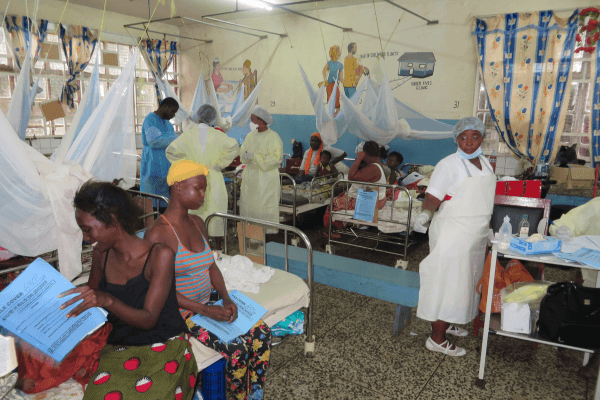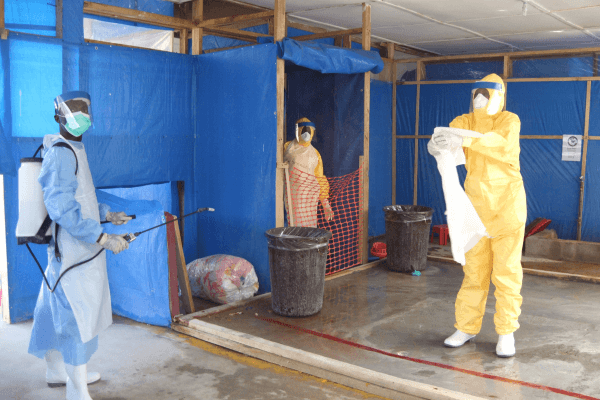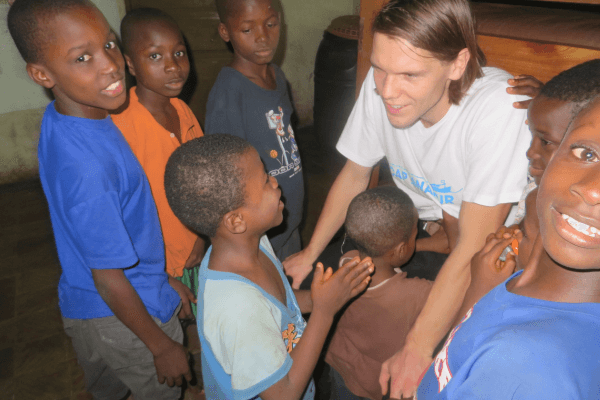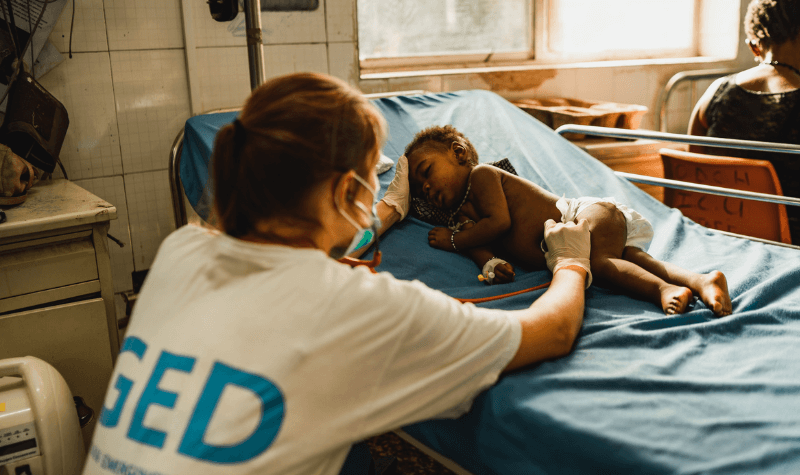Sierra Leone’s Healthcare System | 10 Years after Ebola
Cap Anamur was one of the few aid organizations to maintain medical care in Sierra Leone during the Ebola epidemic from 2014 to 2016. Today, we continue to help build up the healthcare system.
10 years after Ebola – The impact on the healthcare system in Sierra Leone is still palpable.
Ten years ago, on August 8, 2014, the United Nations World Health Organization (WHO) declared an international emergency due to Ebola. Even a decade after the epidemic, the effects are still plain to see in Sierra Leone. Even before the outbreak, the West African country’s healthcare system had already been severely damaged by many years of civil war (1992 to 2002). The Ebola crisis dealt the system another severe blow and undid initial improvements.

Despite the outbreak of the epidemic, we remained in Sierra Leone
We are one of the few organizations that remained in the country to continue providing medical aid to the populace. Ole Hengelbrock, worked for Cap Anamur in Sierra Leone from 2013 to 2015 and witnessed the outbreak of the epidemic and its horrific consequences first-hand: “When the virus reached Freetown in May 2014, we were completely unprepared. Basically, the epidemic was already out of control at that point because there had never been an outbreak in an urban area before. Most of the internationals left the country. Projects were shut down. All of the aid options and services disappeared in one fell swoop. There was no space in the hospital to care for suspected or confirmed Ebola patients. We didn’t even have enough equipment to protect local and international staff.
In the initial phase, family members drove those suspected of being infected with Ebola to the hospital all crammed together in one cab. The patients were placed in the parking lot outside the hospital. There was little we could do to treat them except being nearby, offering basic medical treatment and water if they were still able to receive it, protecting them from the rain and sun, giving them blankets. Later, when there were cases of Ebola inside the clinic, it was shut down. The main problem was then not just the Ebola virus, but the closure of the only children’s hospital in the country and thus untreated cases of malaria, meningitis and diarrhea.”

Establishing an isolation ward to contain the spread of the epidemic
By setting up the isolation ward, we were able to resume work in the children’s hospital, which had been closed for around two months due to the state of emergency. It is estimated that more than 6,500 people fell victim to the deadly virus. The number of unreported cases is even higher because hardly any statistics were kept in the initial phase and those infected often did not come to the hospital and died without a diagnosis. Many children lost their parents as a result of the epidemic.

Treatment of Ebola orphans in our shelter for homeless children
We have taken in and cared for numerous Ebola orphans in our homeless children shelter, Pikin Paddy. Surviving family members were then sought out by local social workers in order to give the children a new home.
Cap Anamur is still active in Sierra Leone
We are still providing support to the children’s hospital in Freetown in order to continue rebuilding the medical infrastructure. Today, the hospital has developed into a “teaching hospital” and trains pediatric specialists. Nevertheless, there is a lack of functioning healthcare facilities, trained specialists and medicines throughout the country, especially for the care of children and mothers. Due to the lack of access to functioning health facilities, around 100 children still die for every 1,000 live births. Therefore, one of our goals is to further reduce the mortality rate at Ola During Childrens’ Hospital. We can ensure this through the continuous training of local staff, the support of sending out medical professionals on assignment and the procurement of medicines.

